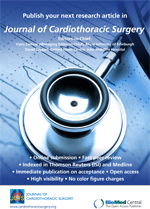导读:音乐总是会有一些奇妙影响。一项最新研究显示,如果让接受心脏移植的实验鼠听歌剧和古典音乐,可以减少排异反应,显著延长移植器官的存活时间。

英国《心胸外科期刊》(Journal of Cardiothoracic Surgery)刊登的这项研究报告说,日本帝京大学等机构的研究人员对几十只实验鼠进行心脏移植,通常这类手术中移植的器官会因排异反应而存活率不高。本次研究也显示,如果不采取任何措施,移植的心脏往往只能存活七八天。
但如果让术后的实验鼠连续听一个星期音乐,如实验中所用的歌剧《茶花女》和莫扎特的曲子,可以减少排异反应,将移植器官的存活时间分别提高到26.5天和20天,个别实验鼠甚至可达80天以上。
不过也不是所有音乐都有这种效果。研究人员还测试了“新世纪音乐”类型的乐曲,发现效果不大。除音乐外,研究人员还测试了多个频率的单一声音,也没有发现明显效果。

Auditory stimulation of opera music induced prolongation of murine cardiac allograft survival and maintained generation of regulatory CD4+CD25+ cells
Masateru Uchiyama, Xiangyuan Jin, Qi Zhang, Toshihito Hirai, Atsushi Amano, Hisashi Bashuda and Masanori Niimi
Background Interactions between the immune response and brain functions such as olfactory, auditory, and visual sensations are likely. This study investigated the effect of sounds on alloimmune responses in a murine model of cardiac allograft transplantation.
Methods Naive CBA mice (H2k) underwent transplantation of a C57BL/6 (B6, H2b) heart and were exposed to one of three types of music--opera (La Traviata), classical (Mozart), and New Age (Enya)--or one of six different single sound frequencies, for 7 days. Additionally, we prepared two groups of CBA recipients with tympanic membrane perforation exposed to opera for 7 days and CBA recipients exposed to opera for 7 days before transplantation (pre-treatment). An adoptive transfer study was performed to determine whether regulatory cells were generated in allograft recipients. Immunohistochemical, cell-proliferation, cytokine, and flow cytometry assessments were also performed.
Results CBA recipients of a B6 cardiac graft that were exposed to opera music and Mozart had significantly prolonged allograft survival (median survival times [MSTs], 26.5 and 20 days, respectively), whereas those exposed to a single sound frequency (100, 500, 1000, 5000, 10,000, or 20,000 Hz) or Enya did not (MSTs, 7.5, 8, 9, 8, 7.5, 8.5 and 11 days, respectively). Untreated, CBA mice with tympanic membrane perforations and CBA recipients exposed to opera for 7 days before transplantation (pre-treatment) rejected B6 cardiac grafts acutely (MSTs, 7, 8 and 8 days, respectively). Adoptive transfer of whole splenocytes, CD4+ cells, or CD4+CD25+ cells from opera-exposed primary allograft recipients resulted in significantly prolonged allograft survival in naive secondary recipients (MSTs, 36, 68, and >100 days, respectively). Proliferation of splenocytes, interleukin (IL)-2 and interferon (IFN)-gamma production was suppressed in opera-exposed mice, and production of IL-4 and IL-10 from opera-exposed transplant recipients increased compared to that from splenocytes of untreated recipients. Flow cytometry studies showed an increased CD4+CD25+Foxp3+ cell population in splenocytes from those mice.
Conclusion Our findings indicate that exposure to opera music, such as La traviata, could affect such aspects of the peripheral immune response as generation of regulatory CD4+CD25+ cells and up-regulation of anti-inflammatory cytokines, resulting in prolonged allograft survival.
文献链接:https://www.cardiothoracicsurgery.org/content/7/1/26/abstract








